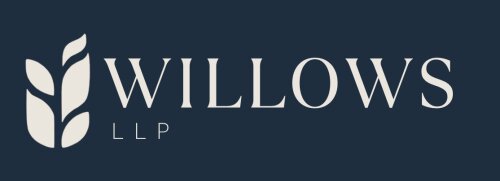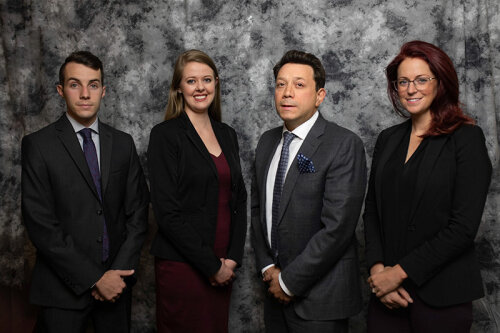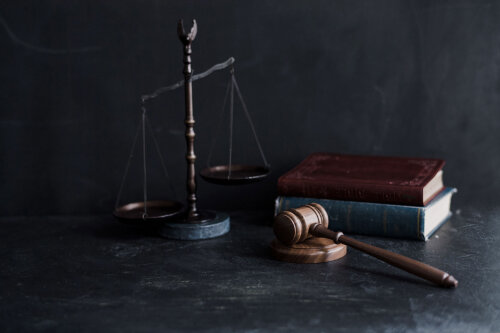Best Ethics and Professional Responsibility Lawyers in Canada
Share your needs with us, get contacted by law firms.
Free. Takes 2 min.
Or refine your search by selecting a city:
List of the best lawyers in Canada
About Ethics and Professional Responsibility Law in Canada
Ethics and Professional Responsibility law in Canada governs the standards of conduct for professionals across various fields, such as law, medicine, accounting, and engineering. These standards ensure that professionals act with integrity, provide competent services, and uphold their respective fields' dignity and reputation. Regulatory bodies in each profession set ethical guidelines and standards of practice to safeguard public interest and maintain trust. Legal frameworks exist to address breaches of these standards and provide mechanisms for accountability and discipline.
Why You May Need a Lawyer
You may require legal assistance in the field of ethics and professional responsibility for several reasons:
- If you are a professional facing allegations of misconduct or ethical violations, legal guidance can help navigate disciplinary proceedings.
- To interpret and respond to the ethical guidelines specific to your profession, ensuring compliance and understanding your obligations.
- If you are a member of the public with a concern about a professional's conduct, a lawyer can advise on filing complaints and legal recourse.
- To aid professionals in drafting policies and procedures that align with ethical standards and mitigate risks.
Local Laws Overview
In Canada, ethics and professional responsibility laws are enforced through a combination of federal, provincial, and territorial legislation, as well as through the regulatory bodies governing each profession. Key aspects include:
- Professional Codes of Conduct: Developed by regulatory bodies, these are detailed guidelines setting the expected standards of professional behavior.
- Legislation: Acts like the Canadian Professional Ethics Act and provincial equivalents provide a legislative framework for maintaining ethical standards.
- Disciplinary Processes: These processes involve investigating complaints, conducting hearings, and determining penalties for violations.
- Regulatory Boards: These entities oversee the licensing of professionals and ensure adherence to ethical standards.
Frequently Asked Questions
What is considered professional misconduct?
Professional misconduct refers to actions that violate the ethical standards or regulations of a profession, such as fraud, breach of confidentiality, or negligence.
How are ethical guidelines enforced?
Ethical guidelines are enforced through regulatory bodies that have the authority to investigate complaints and impose disciplinary measures on professionals who violate these guidelines.
What happens if a professional breaches their ethical responsibilities?
If a breach occurs, the professional may face disciplinary actions, which could include fines, suspension, or revocation of their professional license.
Can I file a complaint against a professional?
Yes, as a member of the public, you can file complaints with the relevant regulatory body if you believe a professional has violated ethical standards or provided substandard services.
Do ethical guidelines vary between professions?
Yes, ethical guidelines are tailored to address specific issues and responsibilities associated with each profession, though they share common themes such as integrity and accountability.
Are there national standards for professional responsibility in Canada?
While overarching principles exist nationwide, specific standards and enforcement mechanisms are typically set by provincial and territorial regulatory bodies for each profession.
What should a professional do if faced with an ethical dilemma?
A professional should seek guidance from their regulatory body, consult with peers, or obtain legal advice to address ethical dilemmas appropriately.
How can a lawyer assist with ethics-related issues?
Lawyers can provide advice on complying with professional standards, represent clients in disciplinary proceedings, and help draft ethical compliance policies.
What are conflict of interest situations in professional settings?
Conflicts of interest arise when a professional's personal interests could improperly influence their professional decisions or actions.
How does one ensure compliance with ethical standards?
Regular training, consultation with ethics committees, and staying informed about applicable regulations and guidelines can help in maintaining compliance.
Additional Resources
The following resources, governmental bodies, and organizations can provide insights and assistance related to ethics and professional responsibility in Canada:
- The Canadian Bar Association: Offers resources on legal ethics in Canada.
- Provincial and Territorial Law Societies: Provide specific information about lawyer conduct and complaints.
- Professional regulatory bodies: Contact relevant organizations specific to your profession for guidelines and support.
- Public Legal Education and Information Centres: Offer accessible information on professional ethics and legal rights.
Next Steps
If you need legal assistance in ethics and professional responsibility:
- Consult with a lawyer experienced in ethics and professional responsibility law to discuss your specific situation.
- Gather all relevant documentation, including correspondence, contracts, and any previous legal advice received.
- Prepare a list of questions or concerns to discuss with your legal advisor.
- Consider reaching out to your profession's regulatory body for preliminary guidance or reports of misconduct.
Lawzana helps you find the best lawyers and law firms in Canada through a curated and pre-screened list of qualified legal professionals. Our platform offers rankings and detailed profiles of attorneys and law firms, allowing you to compare based on practice areas, including Ethics and Professional Responsibility, experience, and client feedback.
Each profile includes a description of the firm's areas of practice, client reviews, team members and partners, year of establishment, spoken languages, office locations, contact information, social media presence, and any published articles or resources. Most firms on our platform speak English and are experienced in both local and international legal matters.
Get a quote from top-rated law firms in Canada — quickly, securely, and without unnecessary hassle.
Disclaimer:
The information provided on this page is for general informational purposes only and does not constitute legal advice. While we strive to ensure the accuracy and relevance of the content, legal information may change over time, and interpretations of the law can vary. You should always consult with a qualified legal professional for advice specific to your situation.
We disclaim all liability for actions taken or not taken based on the content of this page. If you believe any information is incorrect or outdated, please contact us, and we will review and update it where appropriate.
Browse ethics and professional responsibility law firms by city in Canada
Refine your search by selecting a city.













